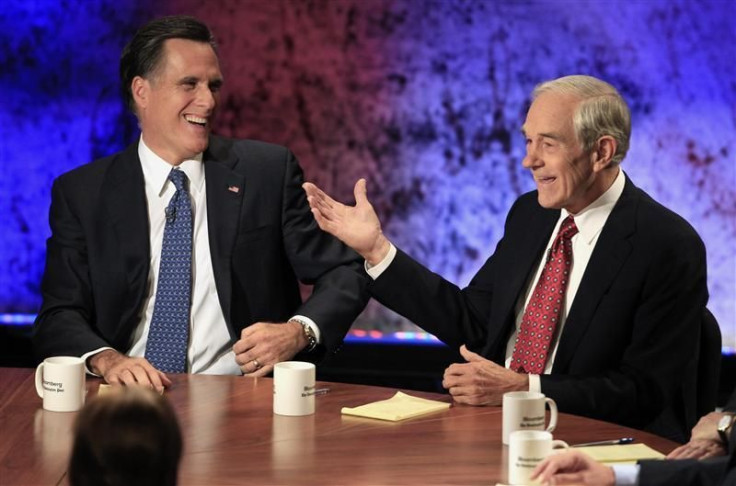Ron Paul 2012: Why is he Better Equipped to Contest Obama?

A recent Times/CBS News poll shows that President Barrack Obama is losing support among the block of independent American voters. It must be of serious concern for the President, as it is this section of voters who helped him win the 2008 elections.
Now the question is who will benefit from this development? A quick glance at the poll trend points to the Republican frontrunner Mitt Romney as the immediate beneficiary. The poll shows a statistical tie of 45 percent between Romney and Obama.
At the same time, if we do an in-depth analysis of the poll trends and consider how other candidates are doing against Obama, as well as the sharp changes in poll trends, the scenario indicates a more complex fight to attract independent voters.
Independent voters are not affiliated to any political party and normally vote for candidates and issues, rather than ideology or a political party. The number of independent voters in America is slightly on the rise and a recent Rasmussen survey puts them at 32 percent, while Republicans are at 35.4 percent and Democrats at 32.7 percent.
These figures clearly indicate why the support of independent voters is crucial for winning the presidential election. Obama won 2008 elections because of the support of the majority of independent voters. Given the nominal margin between the two major political parties (if we assume cross voting will be negligible), independent voters will hold the key to the White House.
Romney is the current frontrunner and most of the Republicans do believe he would be the chosen Republican candidate to fight Obama. He is neck-to-neck with Obama in the national polls.
Still will he be able to make it? The answer seems to be no, as Obama's and Romney's stands on issues of importance to independent voters do not differ too much.
Independent voters are disappointed with Obama, but at the same time they don't consider Romney any better. They will lack a clear choice in case there's a Romney-Obama face-off in November and the votes will get split between the two. Romney is likely to get anti-Obama votes and Obama will benefit from anti-Romney votes.
Another interesting factor in the latest poll is the national acceptability that Texas congressman Ron Paul has gained. Though he stands either third or fourth in South Carolina GOP primary, his support has surged steadily nationally.
Despite all the criticism he gets from his Republican rivals who say he doesn't stand a chance against Obama, Paul has shown considerable improvement in his ratings against the President. He is slightly behind Romney in his winability against Obama. According to a CBS Poll, while all other Republican candidates are way behind when it comes to a duel with Obama, Paul is just four points behind that of Obama's 46 percent.
Another factor that stands in favor of Paul against Romney in getting the independent support is his ideology and personal record. While Romney is struggling to justify his tax returns and vulture capitalist image, Paul stands out for a clean personal record.
Paul's ideology is different from his rival candidates, which is also in contrast with that of Obama. This will attract independent voters who are anti-Obama as well as anti-Romney.
Independent voters choose to be independent because they are not in agreement with the principles and ideologies of the two major parties. They look for a change, and Ron Paul in fact promises that change. This also would benefit Ron Paul in a fight against Obama.
These possibilities still depend on how much support Paul or Romney can get from Republicans. If the polls are any indication then the battle is going to be tough for all the Republican candidates with highly wavering poll results.
© Copyright IBTimes 2025. All rights reserved.






















